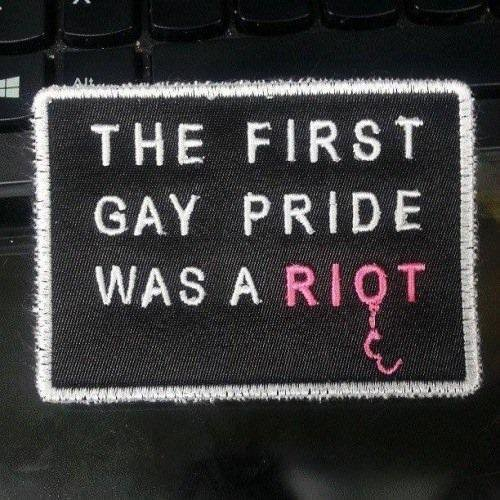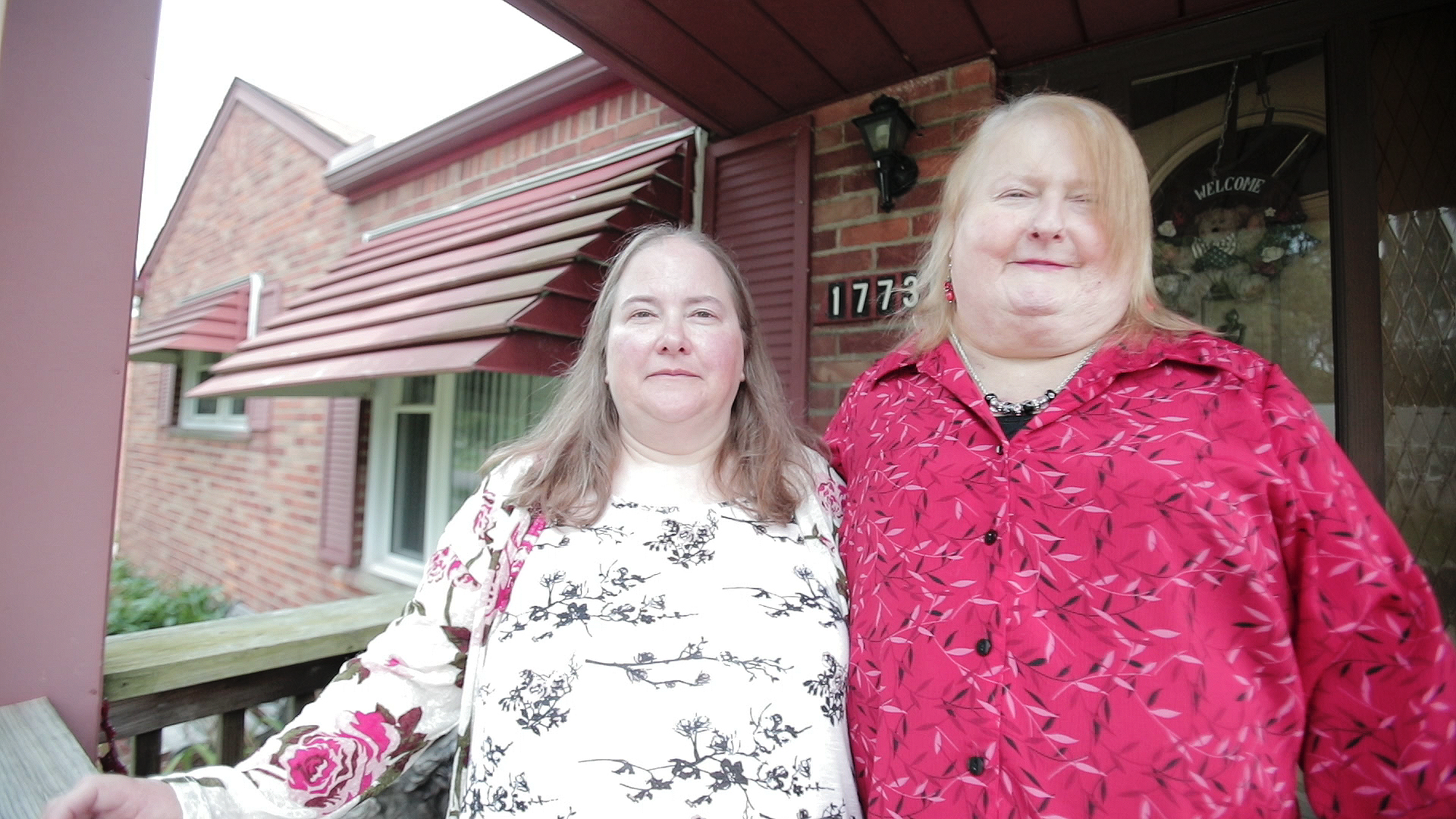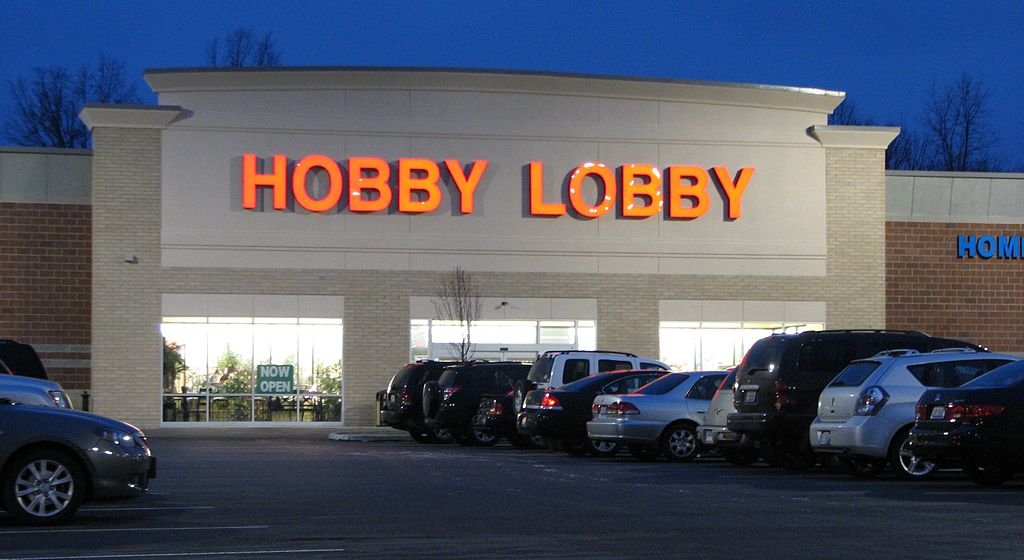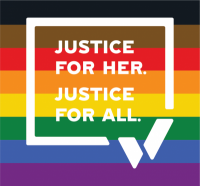Abortion rights, women of color, and LGBTQI+ people are under attack. Pledge to join us in fighting for gender justice.
What Pride Means Under the Trump-Pence Administration

Unlike previous administrations, the Trump White House has chosen (again) to not acknowledge June as Pride Month. To those who have never been ogled on a train for holding your partner’s hand, this decision may seem minor. But if this is your daily experience, Pride is much more than a celebration.
I was born in a time when Pride Month was not acknowledged, when the dominant criteria for being gay matched that of the administration’s policies — Don’t Ask Don’t Tell. Although I grew up in a liberal city, supported by an accepting mother and surrounded by LGBTQ+ culture from an early age, I still felt a pressure to hide when I was in school. The first time someone called me a lesbian, I realized that it was being said as an insult — as an accusation rather than a question. I internalized this sense that the way I had always been was in some way wrong. I did everything I could to counter what I thought would give me away. I would routinely ask my mother before leaving the house, “Does this look too gay?” as if there were some kind of evidence that could be discerned from the way I dressed. I was afraid that I would be unable to hide, unable to shield myself against possible backlash.
With the Obama administration, things began to change. I will always remember June 26, 2013. I was on the subway on my way to meet a friend. As I was crossing the Brooklyn Bridge, my mom called me in tears to tell me that DOMA, The defense of marriage act, which banned same sex marriage, was over. I didn’t expect to feel the way I did in that moment. I hadn’t realized that there was a weight on my chest that had suddenly been lifted. To see the White House lit up that night, I knew it for the first time that my country and my president openly supported my right to exist, without caveats or exceptions. Until then, the government had seemingly advocated for my continued inequality. I will not say that this decision meant that I never again faced retribution or discrimination due to my orientation, but there was a new sense of protection in knowing that my government was willing to defend my rights.
But with Trump’s election, and particularly when Mike Pence became vice president, I have come to find that this sense of security was simply a brief illusion. The administration has brought with it a newfound confidence in people to express their discriminatory views openly. My strategy initially was to be even more open and defiant in the face of these new affronts, but while I was visiting my girlfriend’s hometown, I realized that, for some, this new administration has brought about real concerns in regards to safety. When my girlfriend and I first started dating, we did so in secret. She didn’t tell her friends, and any time I would hold her hand, she would look around to make sure no one was watching. She comes from a religious, blue-collar community that rump won by 51 percent in the 2016 presidential election. She had to introduce me to her neighbors as a “friend.” One of those neighbors, a middle-aged woman, truly made me understand how Trump’s election had changed things. She told my girlfriend: “Thank Trump. Tell him he’s doing a great job and give him a kiss from me.” This comment was more than expressing a political view; it was expressing an acceptance of the policies Trump promotes, which include attempts to limit the rights of LGBTQ+ individuals. My partner’s fear came from living in the kind of America Trump had appealed to. For her, it wasn’t a fear of not knowing how people would react; it was knowing that coming out would most certainly have consequences.
Even after we moved in together, miles away from that reality, she will still instinctively drop my hand if we walk past someone in our neighborhood and won’t kiss me goodbye if we’re in public. This constant, deeply held fear is why this Pride Month is so important. She had never been to Pride. As we got off the Metro and walked toward the festivities, we were engulfed by bright colors, music, and couples that looked like us holding hands. I could see she was overwhelmed, but as we got closer, she grabbed my hand, even putting an arm over my shoulder. I saw her feel comfortable knowing that we were in a space where our visibility did not threaten our safety, where there was protection in the fact that she was not alone.
And that is why Pride is so important. While many these days associate Pride with floats, music, and corporate sponsorship, underlying all of this it is still a statement that we are worthy of visibility, respect and equality. Particularly this year, as Trump once again refuses to recognize Pride Month, and we know again this administration does not deem us worthy of equality. Being at Pride felt like a celebration of defiance.
While some may argue that not acknowledging Pride pales in comparison to the administration’s other attacks on the LGBTQ+ community, particularly trans individuals, it still warrants our condemnation. The Trump administration is doing more than simply breaking tradition; it is undermining the progress we have made and sending a message that we are not accepted, that our experiences of struggle are not worthy of acknowledgment, that our government once again aims to render us invisible.





